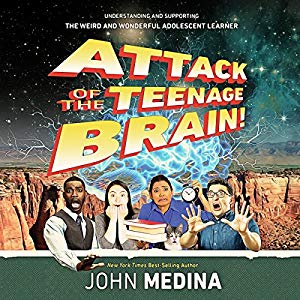Two recent articles in the New York Times have gotten lots of teacherly attention.
What’s Love Got to Do With It?
The first, an op-ed by David Brooks, announces that “students learn from people they love.”
Brooks’s piece includes some heart-warming anecdotes, and name checks some important researchers: Antonio Damasio, for instance, and Mary Helen Immordino-Yang.
(Everyone admires Immordino-Yang’s work. An interview with her appeared on the blog just six weeks ago.)
The hyperbole of the headline, however, strikes me as profoundly unhelpful. “Love” just isn’t a useful word for considering the research that Brooks cites.
Said differently: lots of people learn all sorts of things from people they don’t love.
Students learn better when they have strong positive relationships with their teachers.
They learn better when they feel safe and taken care of.
They learn better with appropriate levels of stress. (Not “lots and lots,” but not “none” either.)
By all means, teachers should keep emotions in mind when we teach. But if “love” isn’t central to your teaching, don’t let Brooks worry you.
(Honestly: too much talk about “love” makes me worry about professional boundaries. We should respect and care about our students. Let’s keep it at that.)
Strike Two
The Times also offers an article about memory training techniques.
I often hear from teachers about Moonwalking with Einstein-like strategies for learning list of words and numbers.
(Another favorite: the method of loci — associating words with a string of familiar places.)
While I don’t doubt these strategies help people memorize random collections of names or digits, I have to ask: how often do teachers want our students to do that?
Most teachers answer that question: “almost never.”
As an English teacher, I want my students to understand the meanings of words, or to know how to subordinate a quotation in a participial phrase, or to explain the concept of “group protagonist” in Grapes of Wrath.
I simply can’t think of a long list of random stuff I want them to memorize.
(A student recently told me she’d been required to memorize information about 60 chemical elements. The method of loci might have helped her.
However: a) I’ve yet to find a chemistry teacher who thinks that this homework assignment was a good idea, and b) how much time would it take to learn those memory techniques in the first place?
Oh, and, c) I’m not sure that assignment really happened in the first place. It’s just possible that student exaggerated a smidge.)
In Sum…
Read the Times (or don’t) for its political coverage. Subscribe (or not) for the crosswords.
But: if you see education advice, check with a friendly MBE professional before you make changes in your classroom.
 About Andrew Watson
About Andrew Watson 



















